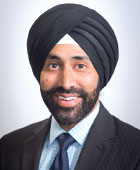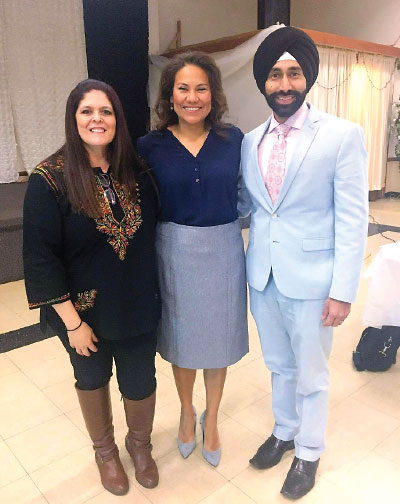Grassroots Movement of Psychiatrists Arises to Support Asylum-Seeking Families
Abstract
A psychiatrist takes matters into his own hands to join with like-minded individuals to train mental health professionals, lawyers, and others who want to help asylum seekers.

“Our lives begin to end the moment we become silent about things that matter.” —Dr. Martin Luther King Jr.
I remember feeling so nervous and shaky the first time that I drove to the Immigration and Customs Enforcement (ICE) detention center in rural Grants, N.M. I made my way to the ICE checkpoint, eyeing the barbed wire fences, and soon passed through a metal detector. Entire families were waiting at the checkpoint to see detained loved ones.
An ICE officer led me back to an interview room where I met a transgender woman who reported some of the most horrific traumas I had ever heard. Her story was so graphic and terrible that it seemed completely surreal, as if such a story could exist only in fiction and not in the real world. She described things that seemed unimaginable for one human being to do to another and for no apparent reason. Her pain and tension were palpable as she trembled with fear and told her story through a shaky voice. She had to stop the interview several times as she sobbed into scarred arms. She looked me in the eye as she fought back tears and said, “If I go back, they will kill me and my family.”
I remember dissociating for most of the drive home and just staring off into the distance to grasp what I had heard. I wrote the report and anxiously awaited any news. After what seemed like an eternity, I got a call from her lawyer, who informed me that our mutual client had indeed been granted asylum! It was one of the most exhilarating moments of my life. As physicians we often get to provide people with symptomatic relief, and if we’re lucky, we can change a life trajectory, but seldom do we get to provide individuals with freedom!

Shawn Sidhu, M.D., poses with Fabiola Ekleberry (left), president of the Professional Counselors of El Paso, and Rep. Veronica Escobar (D-Texas) at one of the trainings for professionals who want to help asylum seekers.
A small group of us began doing asylum evaluations at the detention center in early 2018, but it quickly became clear that we would not be able to meet the exponentially increasing demand. I remember feeling stuck in that moment and reached out to national organizations to come to New Mexico for a large group training. We even offered to pay for such a training, but we were told that “New Mexico does not currently have the infrastructure to support this work.”
With few other options, we decided to do the training ourselves. We applied for a small grant and were floored when 100 people signed up, and 71 came to the program. One of the attendees was from Texas Tech El Paso, and she invited me to do a similar training in El Paso. This training drew many more people, and the news media were present to spread the word about our movement and its building momentum. I returned to El Paso several months later and was honored to have U.S. Rep. Veronica Escobar (D-Texas) speak at our event.
We then took our training to the epicenter of the refugee crisis in the Texas Rio Grande Valley. Brownsville and McAllen are where many of the children were first separated from their parents this year. We then went to New Orleans, which is home to the largest Honduran population in the nation, and scheduled trainings in Arizona in November.
At press time, we had trained 325 mental health professionals along the U.S.-Mexico border about how to conduct mental health evaluations for asylum-seeking immigrants. Many of these professionals are from small border towns and wanted desperately to do something to help, but did not know what to do. Our training model involves not only training local mental health professionals, but also inviting critical stakeholders such as immigration lawyers and community organizations to join in the training with us. By doing so, the mental health professionals, lawyers, and community organizations can meet one another and begin the process of creating long-lasting working relationships with one another. We also created a list serve that lawyers can use immediately to contact the mental health professionals who attended with requests for evaluations for their clients. In this way, we have been able to build local capacity to assist asylum-seeking families that will not rely on the assistance of outside experts in the future.
You’ve heard the adage, “Give a person a fish, and you feed them for a day; teach a person to fish, and you feed them for a lifetime.” We’ve got a lot more fishermen now, and they’re all going to be needed. ■



